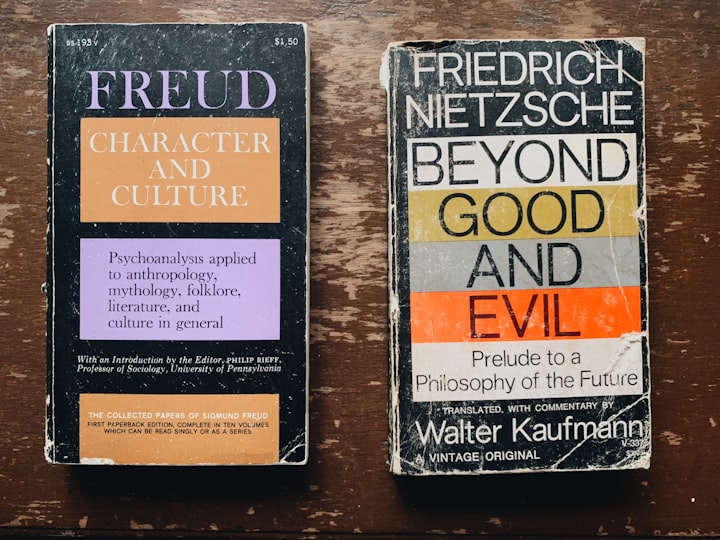Ethical Principles and Standards
Including My Own Personal Experience on Both

A Brief Background
When I was 14, I was relocated from my mother, in Texas, to my Stepfather’s relatives in Michigan. My mother and stepfather lived a hazardous lifestyle of drugs and illegal activity. I was taken to Michigan by my stepfather and placed in foster care because he pled guilty to charges of sexual abuse that involved me while I was put into his relatives' home. (they were equivalent to my step-aunt and uncle) Brenda and Neil Gerber took me in at the age of 14 and, as teachers, were a very positive influence that completely changed my life. This influence prepared me for a very positive, ethical, and essentially a higher moral way of living because I was exposed to a very different perspective from my mother’s influence. Later I got married at 21, worked at a bookstore for 8 years, became a flight attendant, worked as a substitute teacher and a preschool teacher when my daughter was 3.
This was when I learned the most important lesson of my life. Some things can happen in life that is beyond our control. This is when we have the chance to reflect on our ethical and moral upbringing. Sometimes these ethical decisions can conflict with what is written in the law.
My husband at that time, my daughter's father, was working offshore drilling and making a six-figure income. When my daughter was 3, I slowly went back to work as a preschool teacher to bring my daughter to work with me. We were home alone most of the time because offshore workers are gone at least 2 weeks out of every month. We lived in Katy, Tx, and I was very proactive in my daughter's education, taking her to gymnastics; she was the focus of my life. When my husband became violent and nearly punched my daughter in my arms because it was meant for me, I had to leave him. When I left him, I had no support from my family financially and had nowhere to go. In the beginning, it was an arduous struggle; I left him with the house and started new. What happened at this point changed my life forever.
My ex-husband asked his mother to move down from Michigan, and he worked together with my family to take my daughter. He filed for divorce and put a restraining order on me. After months of not seeing my daughter, I was forced to sign an agreement in mediation that would allow me to see her supervised by him until I could financially get back on my feet. At the time, with no prior knowledge of the law, I agreed, yet this decree gave him full control to not allow me to see her, and without the funds to retain an attorney, he was able to get his revenge. My three-year-old daughter was legally taken from me.
I worked multiple jobs as a bartender, at the bookstore, and as a teacher during the school year. After saving for an attorney, giving him $5000, the court battle went on, and I was required to provide an additional $5000 a month to keep things going. I had had enough! Desperate, mentally unstable, and even wronged, I went to the dark side. For three years, I went to the criminal life to afford attorney payments and at least have visitations with my daughter.
In concurrent with these events, my stepson came to my current husband and said that he was having thoughts of suicide because of sexual and physical abuse from his mother. This happened before my criminal activity, and when I was teaching, I reported the incident, and another court case has begun.
Obviously, I did not make the best choices morally, ethically, and legally during these two court battles. My husband is 100% medically retired with a Traumatic Brain Injury and was very limited in providing help. During those three years of ethical dilemmas and cognitive dissonance, many times led to borderline madness, yet I refused to give up on my children and my pursuit to keep them safe.

An Explanation of How the Five General Principles of Psychologists Differ from the Ethical Standards
The five General Principles express our moral perspective into right and wrong on a more individual and personal level (APA, 2002a). I feel that these principles would refer to actions both on and off duty as a professional. Ethical codes established a uniform base that encourages developing those principles. One example of this could be whether or not a doctor prefers to use MAT in addiction. This is often seen as a controversial question in outpatient rehabilitation. The laws that govern Medically Assisted Treatment during addiction recovery are the same for all situations, yet some psychologists are 100% against medication. These topics could fall under ethical standards guiding occurrences when Suboxone medication may also be useful for pain management, making it more beneficial to provide for the patient (American Psychologist, 2002).
The dilemma that I often see within the professional community is the lack of empathy from not having a personal experience. How can a doctor make the best decision to send someone to inpatient rehabilitation when they have never been there themselves and have seen how the process works. The same can be said for Criminal Court Judges. How do they know if sending these individuals to prison will help them reform and become positive society members if they have never experienced life in prison? If every judge was required to serve five years of imprisonment to become a judge, do you honestly think they would be sending so many people to prison? Would the US still be the highest prison population per capita in the world if the personal experience were included in their training? Based on my prior knowledge of prison, I would say no. It is by far the most horrific and humbling time that I have ever spent in my life.

Assess the Utility of Having These Two Separate Parts and Provide Examples of How They Inform and Complement Each Other
Maintaining strong ethical guidelines, including incorporating the two principles, can become a strong foundation for any private practice (Tjeltveit & Gottlieb, 2010). I explained my history because I know that I will need to reference it within future ethical discussions. I currently have a Private Practice where I do Life Coaching and Mediation. Because of my brief criminal past, I had to do extensive research on the legal implications of professionally performing these roles. Within the three years that I led the life of a criminal, this was never who I am; this was something I did for a short time based on necessity. I often relate it to the time an individual spends in the military, and they are under orders to carry a weapon and even commit murder. When they come back to life as a civilian, the transition can be challenging in dealing with cognitive dissonance, yet many people recover.
I find that because of my history; I am very strict in maintaining clear and transparent ethical practices (Tjeltveit & Gottlieb, 2010). During my last residency, it was brought to my attention that being a recovery coach in Michigan required a state license. Before this, I was informed that all coaching required certifications regardless of the coaching topic. After careful research, I make it clear in all of my written consent with my clients on the issues I am helping them involving coaching. While Life Coaching and Addiction Coaching may have very similar attributes, I am very clear that I am a Life Coach and refer my clients to addiction coaching or therapy when needed.
In addition to this, the guilt from my past has caused me to be an overachiever. I’m currently working on my second Ph.D. that is in clinical psychology. In my spare time, I take certification courses in Neurology, Addiction Treatment, and Negotiation at colleges like Harvard edx, Stanford, King’s College, and many more. I moved to Michigan 2 years ago because my ex-husband brought my daughter up here, and my relationship with her now that she is a teenager is better than it has ever been.
Both sets of ethical principles should be used in an unbiased and neutral atmosphere. This is why Mediation training is so necessary to reinforce these ethical principles in practice. In contrast, professional Mediators are not required to use General Principles of Psychologists and may only adhere to the Ethical Standards. Using both approaches, the Mediator can be confident in knowing the best mediation standards will be maintained. Personal values and judgments are not recommended as an influence on a mediator, and sometimes less prior knowledge about the individual parties’ situation, the better the outcome. Continuously relying on these General Principles of Psychologists and Ethical Standards, I am more confident within my private practice. I am well aware that life situations can happen on any given day, and it's these ethical standards that we must adhere to to be confident that we are providing the best service for our clients.
According to Strickland, the average individual could merely make a moderate livelihood when they adhere to others' directions (Strickland, 200). These sentiments and misassumptions were comparable to those of both Yerkes and Lewis Terman, who eventually appealed for universal intelligence testing, considering that the high costs of crime could be diminished by extracting the feebleminded from society (Strickland, 200). In addition to this, theorizing that employment opportunities would be better regulated by intelligence, including a proposed a social order that would devote distinguished and rewarding occupations to populations with IQs under 100 (Strickland, 200).
Discrimination within the psychology profession has evolved a great deal. Some states have what they call “Ban the Box,” an American campaign by advocates for ex-offenders that helps against discrimination of applicants who may have a criminal record. According to Dr. Paul K. Fauteck, Psy.D, getting licensed as a psychologist, even with a felony, is very much a possibility (Walker, 2010). Dr. Paul Fauteck is an ex-offender turned forensic psychologist and provides testimony that someone can turn around their life (Walker, 2010). He further states that although drug offenses might be a bar to getting licensed, there are no specific provisions in the statute that would be an automatic disqualification (Walker, 2010). Each situation is considered involving how much time has passed since a conviction and what occurred during the events.
References
American Psychologist. (2002). Ethical Principles of Psychologists and Code of Conduct. American Psychologist, 1060-1073.
APA. (2002a). Ethical Principles of Psychologists and Code of Conduct. Retrieved from American Psychological Association: https://www.apa.org/ethics/code/index
Strickland, B. (200). Misassumptions, misadventures, and the misuse of psychology. American Psychologist, 331-338.
Tjeltveit, A., & Gottlieb, M. (2010). Avoiding the road to ethical disaster: Overcoming vulnerabilities and developing resilience. Psychotherapy: Theory, Research, Practice, Training, 98-110.
Walker, J. (2010, April 13). Straight Talk: Dr. Paul K. Fauteck, from felon to practicing psychologist. Retrieved from Out and Employed: https://outandemployed.wordpress.com/2010/04/13/straight-talk-dr-paul-k-fauteck-from-felon-to-practicing-psychologist/
About the Creator
Dr. Reanna Waugh PhD
Dr. Reanna Waugh PhD Founder and CEO of Waugh's Holistic Wellness Center, Student, second PhD in Clinical Psychology, Life Coach at WHWC currently in Gladstone, MI (USA) with her husband, Kyle Waugh, a retired Veteran of the Air Force.






Comments
There are no comments for this story
Be the first to respond and start the conversation.